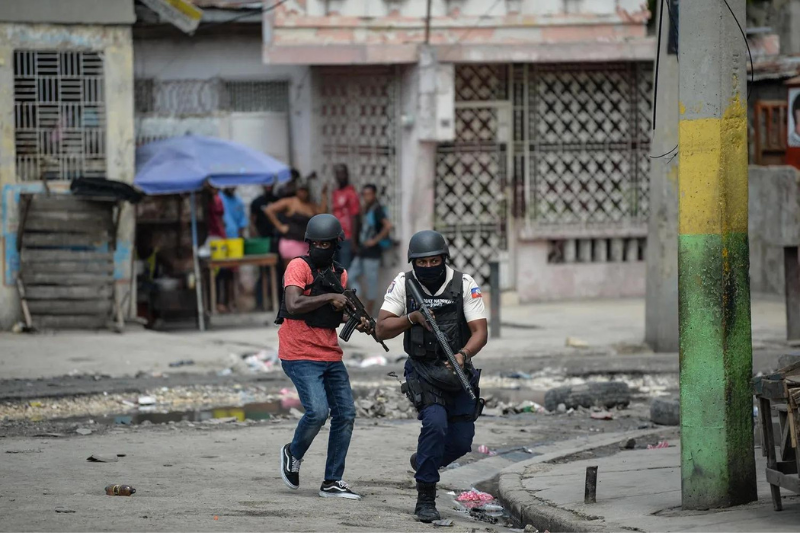Kenyan Defense Minister Aden Duale has announced Kenya’s readiness to deploy troops to Haiti to help address the rising gang violence plaguing the nation. This significant commitment comes as part of an international mission to restore stability in the violence-stricken country.
U.S.-Kenya defense agreement
The United States and Kenya have formalized their defense cooperation through a newly signed agreement. This accord will provide Kenya with crucial resources and support for security deployments. The defense agreement, inked by U.S. Defense Secretary Lloyd Austin and Kenyan Defense Minister Aden Duale, outlines the defense relations between the two nations for the next five years.
Secretary Austin emphasized the importance of the strategic partnership between the United States and Kenya during the signing of the defense cooperation framework. He acknowledged Kenya’s crucial role in combating Al-Shabab, an armed group affiliated with al-Qaeda that operates in East Africa.
Kenya takes the lead.
Kenya’s commitment to leading a multinational force to Haiti underscores its dedication to international peacekeeping efforts. The mission aims to provide support and training to the Haitian police force, enabling them to restore normalcy in a country deeply affected by gang violence.
The Haitian capital, Port-au-Prince, is grappling with widespread gang control, resulting in a series of devastating attacks. These attacks include kidnappings for ransom and sexual violence against Haitians, leading to the displacement of thousands from their homes.
International support for Haiti
In October of the previous year, Haiti’s de facto leader, Prime Minister Ariel Henry, called upon the international community to establish a specialized armed force to quell the violence. Both the United States and the United Nations backed this request for an international mission to Haiti. However, the deployment has faced prolonged delays due to the absence of a country willing to lead such an operation.
While the proposal for foreign intervention has garnered international support, some rights activists have raised concerns about previous missions that have inadvertently caused harm. These activists emphasize the importance of ensuring adequate safeguards during any deployment.
Keep Reading
Kenya’s multinational force
Kenya’s decision to lead a multinational force in Haiti, contingent on receiving a mandate from the UN Security Council, marks a significant step toward addressing the crisis. The mission’s primary goal is to assist the Haitian police force and help restore stability to the nation.
U.S. support and call for contributions
U.S. Secretary of State Antony Blinken has urged the UN Security Council to approve the mission, highlighting that it could be ready for deployment within months. The United States has pledged substantial financial and logistical support to facilitate the mission’s success. Additionally, Secretary Blinken called upon the international community to contribute personnel, equipment, logistics, training, and funding, emphasizing that collective efforts are essential for success.
Kenya’s peacekeeping legacy
Kenya has a long history of participating in international peacekeeping missions, as demonstrated by the involvement of the country in the Congo, Somalia’s neighbor, and Kosovo. Kenya can now contribute significantly to international missions aimed at restoring peace and stability, thanks to its experience.
A concern for human rights
While Kenya’s dedication to the mission is commendable, human rights advocates have expressed their concerns, pointing to a pattern of violations of human rights in the country’s security operations. The key difficulty will be balancing the mission’s goals with respect for human rights.

